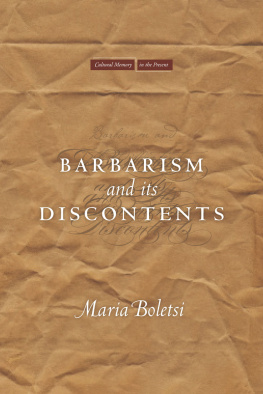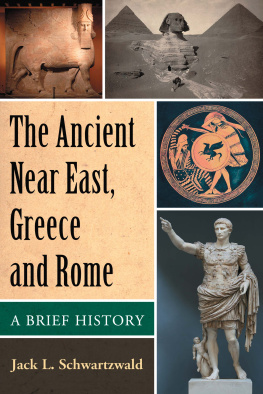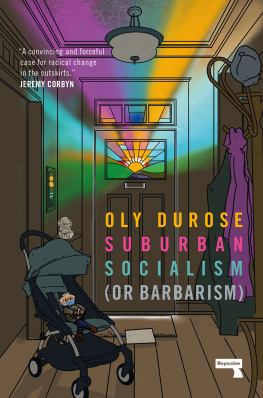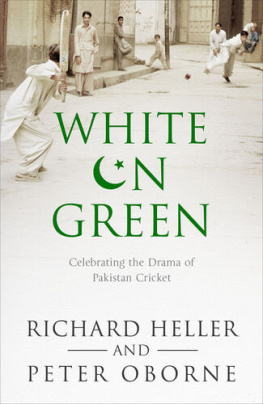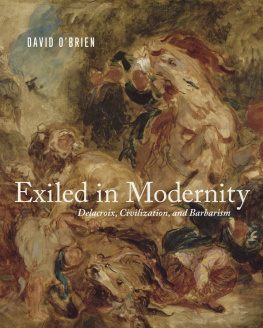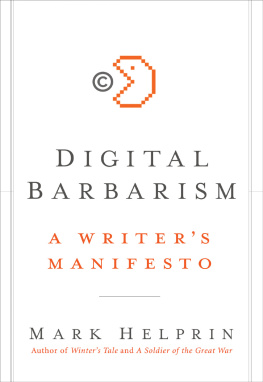C ultural Memory in the Present
Roberto Esposito, Living Thought: The Origins and Actuality of Italian Philosophy
Sigrid Weigel, Walter Benjamin: Images, the Creaturely, and the Holy
Henri Atlan, The Sparks of Randomness, Volume 2: The Atheism of Scripture
Rdiger Campe, The Game of Probability: Literature and Calculation from Pascal to Kleist
Niklas Luhmann, A Systems Theory of Religion
Jean-Luc Marion, In the Selfs Place: The Approach of Saint Augustine
Rodolphe Gasch, Georges Bataille: Phenomenology and Phantasmatology
Niklas Luhmann, Theory of Society, Volume 1
Alessia Ricciardi, After La Dolce Vita: A Cultural Prehistory of Berlusconis Italy
Daniel Innerarity, The Future and Its Enemies: In Defense of Political Hope
Patricia Pisters, The Neuro-Image: A Deleuzian Film-Philosophy of Digital Screen Culture
Franois-David Sebbah, Testing the Limit: Derrida, Henry, Levinas, and the Phenomenological Tradition
Erik Peterson, Theological Tractates, edited by Michael J. Hollerich
Feisal G. Mohamed, Milton and the Post-Secular Present: Ethics, Politics, Terrorism
Pierre Hadot, The Present Alone Is Our Happiness, Second Edition: Conversations with Jeannie Carlier and Arnold I. Davidson
Yasco Horsman, Theaters of Justice: Judging, Staging, and Working Through in Arendt, Brecht, and Delbo
Jacques Derrida, Parages, edited by John P. Leavey
Henri Atlan, The Sparks of Randomness, Volume 1: Spermatic Knowledge
Rebecca Comay, Mourning Sickness: Hegel and the French Revolution
Djelal Kadir, Memos from the Besieged City: Lifelines for Cultural Sustainability
Stanley Cavell, Little Did I Know: Excerpts from Memory
Jacob Rogozinski, The Ego and the Flesh: An Introduction to Egoanalysis
Marcel Hnaff, The Price of Truth: Gift, Money, and Philosophy
Paul Patton, Deleuzian Concepts: Philosophy, Colonialization, Politics
Michael Fagenblat, A Covenant of Creatures: Levinass Philosophy of Judaism
Stefanos Geroulanos, An Atheism that Is Not Humanist Emerges in French Thought
Andrew Herscher, Violence Taking Place: The Architecture of the Kosovo Conflict
Hans-Jrg Rheinberger, On Historicizing Epistemology: An Essay
Jacob Taubes, From Cult to Culture, edited by Charlotte Fonrobert and Amir Engel
Peter Hitchcock, The Long Space: Transnationalism and Postcolonial Form
Lambert Wiesing, Artificial Presence: Philosophical Studies in Image Theory
Jacob Taubes, Occidental Eschatology
Freddie Rokem, Philosophers and Thespians: Thinking Performance
Roberto Esposito, Communitas: The Origin and Destiny of Community
Vilashini Cooppan, Worlds Within: National Narratives and Global Connections in Postcolonial Writing
Josef Frchtl, The Impertinent Self: A Heroic History of Modernity
Frank Ankersmit, Ewa Domanska, and Hans Kellner, eds., Re-Figuring Hayden White
Michael Rothberg, Multidirectional Memory: Remembering the Holocaust in the Age of Decolonization
Jean-Franois Lyotard, Enthusiasm: The Kantian Critique of History
Ernst van Alphen, Mieke Bal, and Carel Smith, eds., The Rhetoric of Sincerity
Stphane Moss, The Angel of History: Rosenzweig, Benjamin, Scholem
Pierre Hadot, The Present Alone Is Our Happiness: Conversations with Jeannie Carlier and Arnold I. Davidson
Alexandre Lefebvre, The Image of the Law: Deleuze, Bergson, Spinoza
Samira Haj, Reconfiguring Islamic Tradition: Reform, Rationality, and Modernity
Diane Perpich, The Ethics of Emmanuel Levinas
Marcel Detienne, Comparing the Incomparable
Franois Delaporte, Anatomy of the Passions
Ren Girard, Mimesis and Theory: Essays on Literature and Criticism, 19592005
Richard Baxstrom, Houses in Motion: The Experience of Place and the Problem of Belief in Urban Malaysia
Samantha Frost, Lessons from a Materialist Thinker: Hobbesian Reflections on Ethics and Politics
Regina Mara Schwartz, Sacramental Poetics at the Dawn of Secularism: When God Left the World
Gil Anidjar, Semites: Race, Religion, Literature
Ranjana Khanna, Algeria Cuts: Women and Representation, 1830 to the Present
Esther Peeren, Intersubjectivities and Popular Culture: Bakhtin and Beyond
Eyal Peretz, Becoming Visionary: Brian De Palmas Cinematic Education of the Senses
Diana Sorensen, A Turbulent Decade Remembered: Scenes from the Latin American Sixties
Hubert Damisch, A Childhood Memory by Piero della Francesca
Jos van Dijck, Mediated Memories in the Digital Age
Dana Hollander, Exemplarity and Chosenness: Rosenzweig and Derrida on the Nation of Philosophy
Asja Szafraniec, Beckett, Derrida, and the Event of Literature
Sara Guyer, Romanticism After Auschwitz
Alison Ross, The Aesthetic Paths of Philosophy: Presentation in Kant, Heidegger, Lacoue-Labarthe, and Nancy
Gerhard Richter, Thought-Images: Frankfurt School Writers Reflections from Damaged Life
Bella Brodzki, Can These Bones Live? Translation, Survival, and Cultural Memory
Rodolphe Gasch, The Honor of Thinking: Critique, Theory, Philosophy
Brigitte Peucker, The Material Image: Art and the Real in Film
Natalie Melas, All the Difference in the World: Postcoloniality and the Ends of Comparison
Jonathan Culler, The Literary in Theory
Michael G. Levine, The Belated Witness: Literature, Testimony, and the Question of Holocaust Survival
Jennifer A. Jordan, Structures of Memory: Understanding German Change in Berlin and Beyond
Christoph Menke, Reflections of Equality
Marlne Zarader, The Unthought Debt: Heidegger and the Hebraic Heritage
Jan Assmann, Religion and Cultural Memory: Ten Studies
Gyanendra Pandey, Routine Violence: Nations, Fragments, Histories
James Siegel, Naming the Witch
J. M. Bernstein, Against Voluptuous Bodies: Late Modernism and the Meaning of Painting
Theodore W. Jennings, Jr., Reading Derrida / Thinking Paul: On Justice
Richard Rorty and Eduardo Mendieta, Take Care of Freedom and Truth Will Take Care of Itself: Interviews with Richard Rorty
Jacques Derrida, Paper Machine
Renaud Barbaras, Desire and Distance: Introduction to a Phenomenology of Perception
Jill Bennett, Empathic Vision: Affect, Trauma, and Contemporary Art
Ban Wang, Illuminations from the Past: Trauma, Memory, and History in Modern China
James Phillips, Heideggers Volk: Between National Socialism and Poetry
Frank Ankersmit, Sublime Historical Experience
Istvn Rv, Retroactive Justice: Prehistory of Post-Communism
Paola Marrati, Genesis and Trace: Derrida Reading Husserl and Heidegger
Krzysztof Ziarek, The Force of Art
Marie-Jos Mondzain, Image, Icon, Economy: The Byzantine Origins of the Contemporary Imaginary
Cecilia Sjholm, The Antigone Complex: Ethics and the Invention of Feminine Desire
Jacques Derrida and Elisabeth Roudinesco, For What Tomorrow... : A Dialogue
Elisabeth Weber,
Next page
